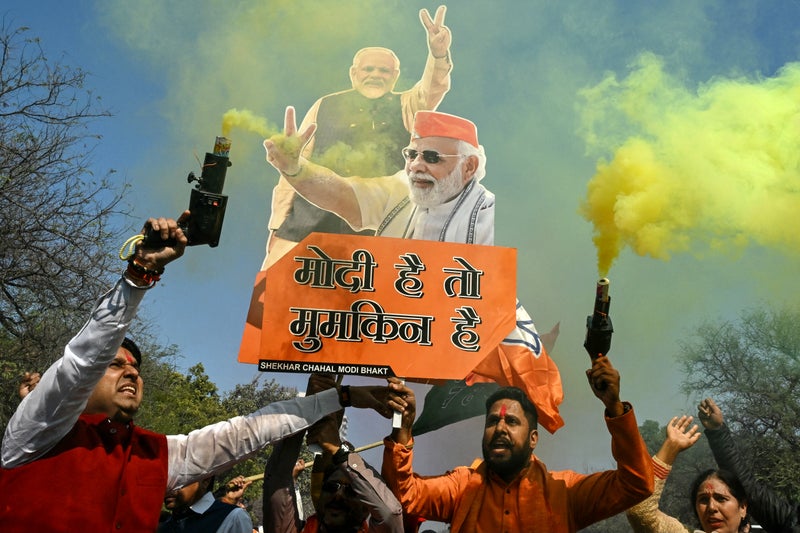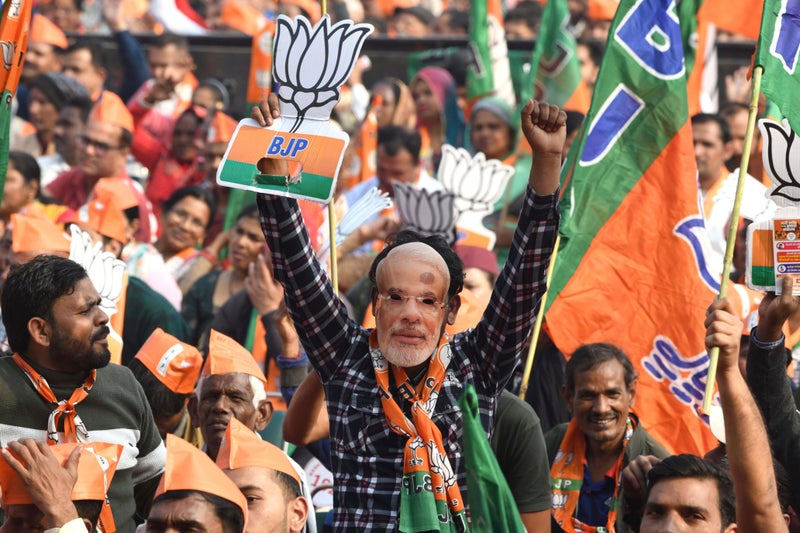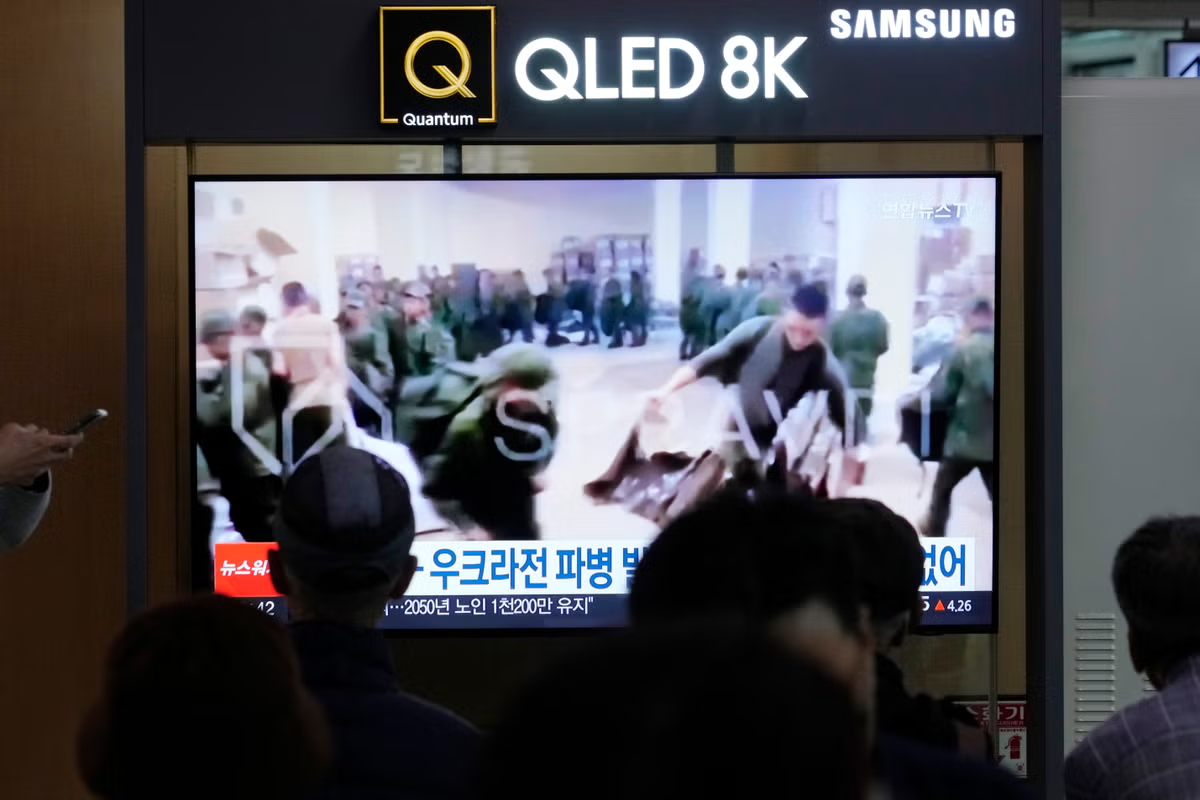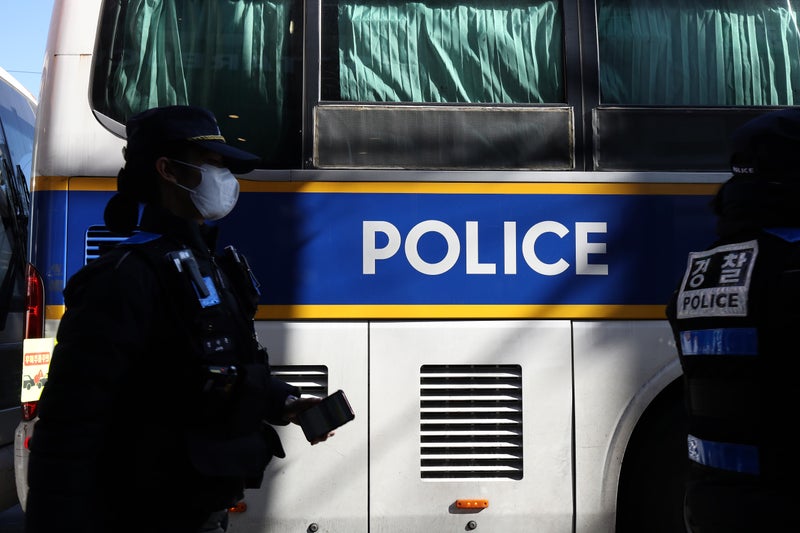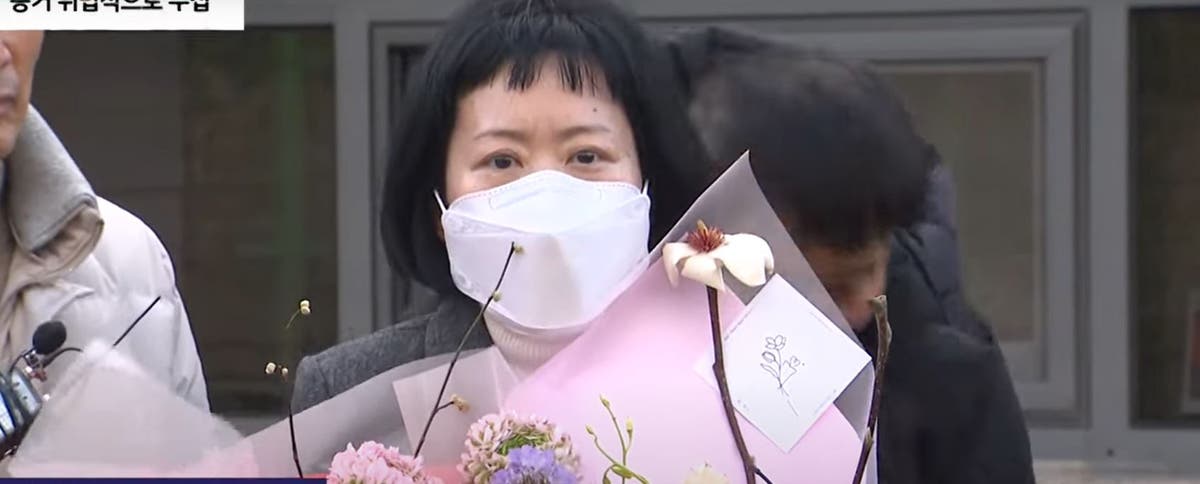State election is a largely direct fight between BJP and incumbent Aam Aadmi Party. More than 15 million people were eligible to vote to elect members of the Delhi legislature in a largely two-way battle between the BJP and the incumbent Aam Aadmi Party, or AAP. Polling started at 7am across 13,000 polling booths and by 3pm local time, about 46.5 per cent of the voters had turned out. The results are due on Saturday.
The election was seen as a test for Mr Modi and his BJP, which lost its majority in last year’s national election and was forced to form a coalition government. Delhi, a city of over 20 million people, is a federal territory that Modi's party has not won for over 27 years despite having a sizable support base there. The AAP won 62 of the 70 assembly seats in the last election held five years ago. Mr Modi and Mr Kejriwal both campaigned vigorously for the election, with their roadshows drawing thousands of supporters.
Both offered to revamp government schools and provide free health services and electricity as well as a monthly stipend of over Rs2,000 (£18) to poor women. The main national opposition Congress party was also in the fray, but pollsters and pundits gave it little chance. Mr Kejriwal relinquished the chief minister's post after being freed on bail by the Supreme Court and handed over the reins to senior party member Atishi.
The BJP failed to secure a majority on its own in last year's national election but regained some lost ground by winning state elections in northern Haryana and western Maharashtra states. Mr Modi's party hoped to benefit in Delhi after last week's federal budget slashed income taxes for the salaried class, one of its key voting blocs. Opposition parties widely condemned Mr Kejriwal's arrest, accusing Mr Modi's government of misusing federal agencies to harass and weaken his political opponents, and pointed to several raids, arrests and corruption investigations of key opposition figures in the months before the national election.
Mr Kejriwal, an anti-corruption activist, formed the AAP in 2012 after tapping into public anger against the Congress party’s then federal government over a series of corruption scandals. His pro-poor policies have focused on fixing state-run schools and providing cheap electricity, free health care, and free bus transport for women. The BJP was voted out of power in Delhi in 1998 and the Congress party ran the city for the next 15 years. In the 2015 and 2020 elections, the AAP won landslide victories.


